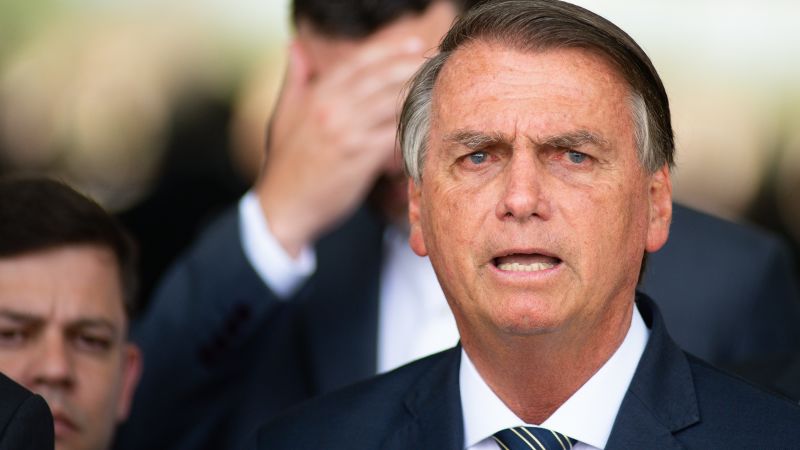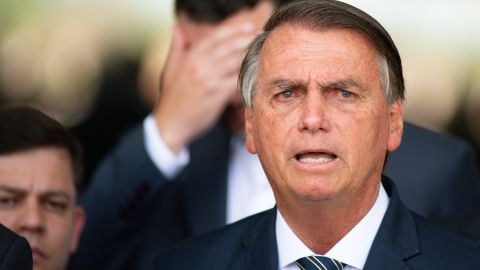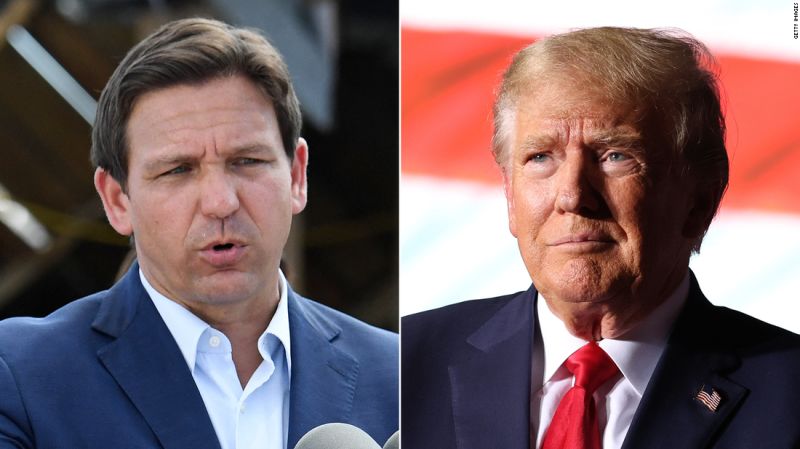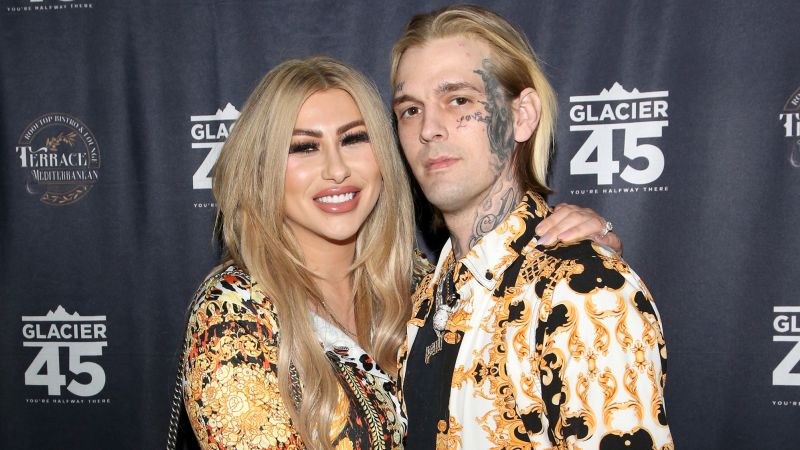Analysis: As Brazil cracks down on fake news, Bolsonaro's new move is straight out of Trump's playbook
Brazilian authorities have aggressively stepped up the crackdown on disinformation ahead of Sunday's run-off vote between the two political titans -- an initiative that has drawn criticism of overreach.


CNN —
After Donald Trump’s 2020 reelection bid failed, some supporters claimed that the media and social media had been unfair to the former President – a narrative that continues to resonate among his base today.
Similar claims are now echoing thousands of miles south in Brazil, where allies of right-wing populist President Jair Bolsonaro have been claiming he is a “victim” even before the country’s October 30 run-off vote for the presidency gets underway – offering a glimpse of how Bolsonaro might dispute a potential victory by his rival, former President Luis Inácio Lula da Silva.
“Bolsonaro is a victim of the biggest electoral fraud ever seen,” tweeted Bolsonaro’s son, Sen. Flávio Bolsonaro on Wednesday.
Right-wing Sen. Lasier Martins meanwhile called for the elections to be postponed – a chilling suggestion in a nation that still bears the scars of military dictatorship.
Both were reacting to a decision on Wednesday by Brazil’s electoral authority to dismiss a complaint that Bolsonaro adverts received less airtime than those for Lula da Silva, in an alleged violation of campaign laws.
Late Wednesday evening, Bolsonaro called a last-minute news conference in Brasilia where he made the same allegations of airtime violations, and pledged to appeal the decision.
“Dozens of thousands of ads for the other side, and for our side we didn’t see, on the radio we saw almost zero,” he claimed.
“We know it’s last minute, the elections are around the corner (…) but that’s why the urgency and why we are appealing,” Bolsonaro added, perhaps aware of the optics of desperation.
Alexandre de Moraes, chief justice of the Supreme Electoral Court, has defended the decision, saying it is not the court’s role to monitor political ad placements – and even requested an investigation of Bolsonaro’s campaign for allegedly trying to muddy the waters of the election by submitting a complaint without merit so close to election day.
Brazilian authorities have aggressively stepped up the crackdown on disinformation ahead of Sunday’s run-off vote between the two political titans – an initiative that has drawn criticism of overreach.
Brazil’s Supreme Electoral Court has seen complaints of false information online increase by 1,600% over the 2020 elections. Both Bolsonaro and da Silva have filed complaints about attack ads from their opponents in this election cycle. The ads linked Bolsonaro to cannibalism and pedophilia, and da Silva to Satanic cults and organized crime.
To deal with this avalanche, Brazil’s Supreme Court issued a ruling on Tuesday that allows its election authority to order the removal of specific posts and videos containing false information within an hour of being posted.
On Friday, with the new ruling already in effect, Moraes ordered the removal of 135 postings deemed to be disinformation, and the closing of two Telegram channels that disseminated messages of political violence, CNN Brasil reported.
But Bolsonaro’s supporters argue that the crackdown itself constitutes unfair meddling – and that if his campaign were allowed to continue to speak freely, it would win the election.
His opponents fear a similar argument could be taken up by Bolsonaro himself after election day; if he loses, he could focus his ire on the claim that election authorities “blocked” him from disseminating information.
Bolsonaro on Friday pledged to respect the result of the election, saying after a TV debate with Lula da Silva that “this is what democracy is, whoever has the most votes takes it.”
Even so, that has done little to reassure his critics.
Whether the incumbent right-wing president wins or loses the election, a Trump-like strategy could still prevail; at the end of this election cycle, Bolsonaro will have introduced into Brazilian democracy the notion that democratic institutions – even those established to protect the fairness of elections – cannot be trusted.
If the rhetoric today in America, two years after the 2020 election, is any indication, Brazil should brace for deeper division for some time to come.
What's Your Reaction?





















.jpg)